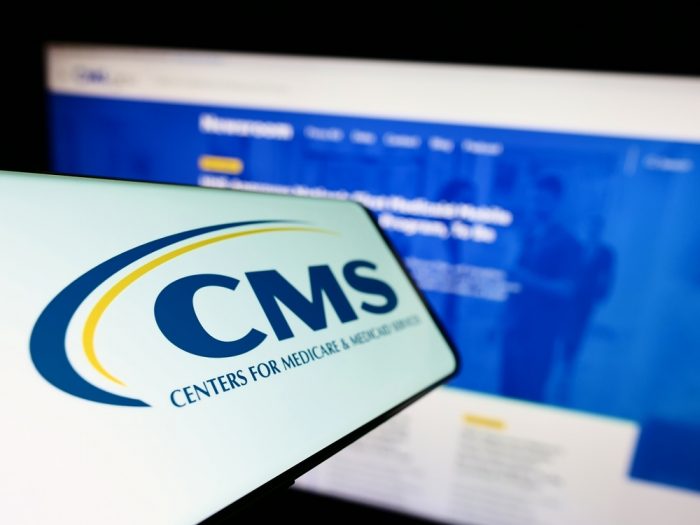IPRC Webinar: The Intersect of Functional Imaging and Clinical Presentation
Christine H. Koterba, PhD, ABPP
Kristen Koskinson, PhD
Aaron McAllister, MS MD
Monday, November 3, 2025
12:00 pm – 1:00 pm EST, 11:00 am – 12:00 pm CST, 10:00 am –11 am MST, 9-10 am PST
Presenter Bios:
Christine H. Koterba, PhD, ABPP, is a Pediatric Neuropsychologist at Nationwide Children’s Hospital and a Clinical Associate Professor of Pediatrics at The Ohio State University. She is the attending inpatient neuropsychologist at NCH and provides neuropsychological consultation and assessment in inpatient and outpatient settings. She is also involved in the pre- and post-doctoral neuropsychological training programs. Her clinical interests include pediatric neuropsychology, acute recovery from brain injury, illnesses (COVID-19, long COVID), and other conditions that impact neurological functioning, and pediatric rehabilitation.
Kristen Hoskinson, PhD, a pediatric neuropsychologist, targets her research aims to improve understanding of the neuroanatomical and functional substrates that contribute to the constellation of cognitive, emotional, and behavioral sequelae of childhood neurologic injury, including pediatric brain tumor, traumatic brain injury, and complex congenital heart disease. She integrates neuroimaging methods with assessed and observable social and emotional functioning to improve early identification of those at elevated risk and at greatest need for intervention. Currently, her funded work focuses on integrating functional MRI and diffusion tensor imaging of white matter integrity, with a particular focus on social cognitive and executive functions networks.
Aaron McAllister, MS MD, is a pediatric neuroradiologist in the Department of Radiology at Nationwide Children’s Hospital, providing world class care to patients. He is trained in general radiology and has completed fellowships in both pediatric radiology and pediatric neuroradiology at Cincinnati Children’s Hospital. He is board certified in both diagnostic radiology and pediatric diagnostic radiology. Dr. McAllister serves as a clinical assistant professor in the Department of Radiology at The Ohio State University College of Medicine, as well as an adjunct assistant professor of Radiology at the School of Medicine at the University of Toledo Medical College.
Objectives
Following this course, participants will:
- Be able to describe two common outcomes following diffuse axonal injury;
- Be able to discuss areas of the brain involved in executive functions; and
- Be able to define basic functions controlled by different areas of the brain.
Audience: This webinar is intended for all interested members of the rehabilitation team.
Level: Beginner–Intermediate
Certificate of Attendance: Certificates of attendance are available for all attendees. No CEs are provided for this course.
Register
Complimentary webinars are a benefit of membership in IPRC/RCPA. Registration fee for non-members is $179. Not a member yet? Consider joining today.
Attendees may wish to review Understanding the Basics of Neuro-imaging and Practical Applications for the Pediatric Rehabilitation Provider (6/8/2023) | IPRC prior to this session.
CMS Issues Policy Clarification on Speech-Language Pathologist Qualifications for Part B Services
On September 23, 2025, the Centers for Medicare and Medicaid Services (CMS) issued a policy clarification related to the qualifications for speech-language pathologists (SLP) when furnishing Part B outpatient therapy services.
These Part B services include speech-language pathology services that:
- Are furnished by SLPs in private practice (SLPPPs) who submit professional claims; and
- Are furnished and billed by providers of outpatient therapy services as defined at 42CFR489.2.
RCPA Drafts Letter to Urge Ending the Budget Impasse, Seeks Support From Members
ODP Shares Reminder for MA Training Requirements, Train-the-Trainer Face-to-Face Schedule
The Office of Developmental Programs (ODP) has shared ODPANN 25-089. This announcement is:
- To share a reminder on Medication Administration Training Requirements
- To announce the Face-to-Face training schedule for October through December 2025.
Please view the information in the announcement for details, including training dates and registration information.
PA to Receive $83 Million in State Opioid Response Funding
Pennsylvania will receive more than $83 million from the Substance Abuse and Mental Health Services Administration (SAMHSA) in State Opioid Response (SOR) grant funding, which provides critical resources to states and Tribal communities to address the overdose crisis through prevention, opioid overdose reversal medications, treatment (including medications for opioid use disorder [MOUD]) and recovery support. On Monday, the U.S. Department of Health and Human Services (HHS), through SAMHSA, announced a total allocation of more than $1.5 billion in Fiscal Year 2025 continuation funding for SOR and Tribal Opioid Response (TOR) grants, with $1.48 billion committed to SOR and nearly $63 million committed to TOR.
This most recent round of funding is the second year of the three-year SOR IV grant cycle, which began October 1, 2024, and runs through September 30, 2027. The Pennsylvania Department of Drug and Alcohol Programs (DDAP) manages and distributes SOR funding, which comprises a significant percentage of DDAP’s annual budget.
Since the SOR program began in 2018, states report that nearly 1.3 million people have received treatment services, including more than 650,000 who received MOUD. Through the SOR program, nearly 1.5 million people have received recovery support services. SAMHSA grantees reported distributing more than 10 million opioid overdose reversal kits, with opioid overdose reversal medications being used to reverse more than 550,000 overdoses. Since the TOR program began in 2018, Tribes report that approximately 16,500 patients have received treatment services, and SAMHSA grantees reported distributing more than 116,500 naloxone kits, with opioid reversal medications being used to reverse more than 1,750 overdoses.
AATOD to Host Free Webinar in Ongoing Effort to Support OTPs In Complying With Updated Regulations
The American Association for the Treatment of Opioid Dependence (AATOD) is hosting a free webinar from 12:30 pm – 2:00 pm Wednesday, September 24, on states’ and treatment providers’ response to the Substance Abuse and Mental Health Administration’s updated regulations governing opioid treatment programs (OTP). The updated regulations, in place since October 2024, are intended to increase accessibility to and flexibility within OTPs, including methadone treatment for opioid use disorder.
Registration for the webinar is required.
The webinar builds on the July 2025 presentation that provided guidance to OTPs on the updated regulations. Presenters will share how states and treatment providers are complying with the regulations and how patients have benefited through increased access, retention, and treatment flexibility.
The discussion will serve as a prelude to AATOD’s policy discussions at the upcoming national conference in Philadelphia, October 4 – 8, 2025.
The webinar will also be available on-demand via the AATOD website. Certificates of Attendance will be provided upon request. For questions, email AATOD.
PBC Quarterly Residential Provider Forum to Be Held December 22
This forum will be held to support provider preparedness. The Office of Development Programs (ODP) will review the quarterly forums and discuss data presented to the Information Sharing and Advisory Committee (ISAC) Provider Performance Review Subcommittee. ODP will also review the emerging themes or trends developing with the implementation of performance-based contracting.
Audience: Residential Providers
Date: December 22, 2025, 1:00 pm – 2:30 pm
Public Comment Sought On SUPTRS Block Grant Application
The Pennsylvania Department of Drug and Alcohol Programs (DDAP) is providing the opportunity for public comment on the Pennsylvania Substance Use Prevention, Treatment, and Recovery Services (SUPTRS) Block Grant application. This application will occur in three parts:
- Substance Abuse Prevention and Treatment Assessment and Plan
- SUPTRS Report (available in November)
- Annual Synar Report (available in December)
The application documents can be accessed through SAMHSA’s Web Block Grant Application System (WebBGAS) using the login “citizenpa” and password “citizen.”
Please submit your comments by Tuesday, September 30.
PBC Quarterly Provider Forum for SCOs on December 2
This forum is to support provider preparedness. Topics of discussion include:
- Most Common Unmet Measures
- Technical Assistance
- Provider Performance Review Data
Audience: Supports Coordination Organizations
Date: December 2, 2025, 1:00 pm – 2:30 pm
















